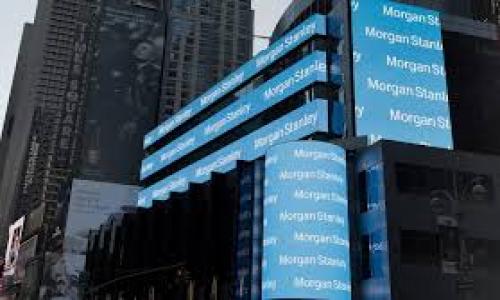The BankDeals Blog posted an excellent article today regarding a letter sent from the American Bankers Association (ABA) to FDIC Chairmwoman Sheila Bair. The letter asks the FDIC to intervene to force Ally Bank (formerly GMAC) to lower the rates it offers on certificates of deposit and savings accounts. Why? Here are a few excerpts from the letter:
Recognizing that the Internet forces banks to compete in a national market for deposits, the FDIC recently issued a proposal to amend its rules by suggesting a bank, under restrictions for deposit growth, use a "national rate" when determing whether the bank is offerfing rates that significantly exceed the market rate. Notwithstanding the government's concen about banks using high-rates to solicit out-of-market deposits, GMAC/Ally Bank is apparantly is permitted to solicit deposits over the Internet by offering rates that are generally the highest in the nation.
The letter ends by asking the regulators to force Ally/GMAC to lower rates:
ABA believes it is completely innapropriate, and indeed risky, for GMAC/Ally Bank to be allowed by regulators to continue to pay rates well above the market. We urge you to apply the same princples that would apply to other banks in a comparable situation to GMAC/Ally.
The ABA's argument is that banks should not be allowed to collect deposits above a certain average "national rate." So what ever happened to bank competition? The statement above alludes to the FDIC's program to force impaired banks from collecting depoists at an excessive rate. But Ally bank is not part of that program, yet. The letter states that the Treasury added $13 billion in capital to the bank but much of this capital was actually used for GMAC Financing and is unrelated to the actual bank, which existed as a separate entity within the company's finance division.
Nor are high deposit rates a cause of failure. Banks fail because of a run on the bank, usually precipitated by loan losses. Or they can be closed by regulators due to capital ratios, non-performing assets, etc. Bank of America, Citi, etc. were not bailed out due to high cd and savings rates. Bad loans made by ABA companies have caused the financial crisis, not a bank that is offering depositors a good deal.
Nor should the high deposit rates offered by Ally be a source of its losses. Ally may not make as much money, but it should be able to make money. Because of the slope of the yield curve there has almost been a better time for banks to make money. They can borrow money from depositors at 2-3% and lend it out to consumers at 5-20%. I recently received a notice from Chase that my credit card rate was increasing to Prime rate plus 14.99%, which is currently 18.24%. I'm not alone.
If banks can't borrow at 3% and lend out at 18.24% and make money, they shouldn't be in business.
Savers have already been punished as banks have dropped savings and cd rates precipitiously over the last year. This occurred because of a financial crisis precipitated by these same banks. Now, they want savers to subsidize their recovery by both funding the TARP and by accepting artificially low rates while at the same increasing fees and the rates they charge on various credit products.
Let the FDIC know that you want competition in savings and cd rates. Send them an email at webmaster@fdic.gov.








Comments
Tom
May 29, 2009
The ABA is run by the big banks, the TARP babies. They need profitability to support their stock prices. Changing the accounting rules, accepting government cash on great terms, and lowering deposit rates below 2% isn't enough for them to support their profitability. They haven't realized yet that the game has changed and nothing they do will bring back their past business model.
Is this review helpful? Yes:0 / No: 0
CJane
May 29, 2009
Community banks and credit unions are offering very competitive rates and have not had any financial problems. Most of them are far more stable than the big banks and they haven't needed to accept TARP money. Competitive rates do not sink a bank, bad loans do.
I'm emailing the FDIC. Socialism that benefits the banks must end.
Is this review helpful? Yes:0 / No: 0
Frank Torres
May 30, 2009
The problem is that the ABA is quoting the average 6-month deposit at .99%. Who in their right mind would lock money away for that rate. After inflation, you'd be losing interest.
If you look at the rate in context of other online banks, then it's actually not that high. The highest rate on this site for a 6-month CD isn't Ally Bank but Corus at 2.2% APY.
The ABA is also wrong to lump Internet banks and brick-and-mortar banks into one category. Internet banks can offer higher rates because they do not have to support the same overhead costs. They generally offer rates that are significantly higher than their b-m cousins. This is often even true within the same bank. Citi and Bank of America often offer a higher rate for opening an account online than going to the branch.
Lastly, does ABA want Ally to fail? Why should consumers invest in an "impaired" bank if they can't get a higher rate? Without some type of risk premium then expect depositors to start pulling their money.
All banks aren't equal and the rates they pay shouldn't be either.
Frank
Is this review helpful? Yes:0 / No: 0
Internet Banker
May 30, 2009
Here's the address to send a letter to Sheila Bair:
The Honorable Sheila Bair
Chairman
Federal Deposit Insurance Corporation
550 17th street NW
Washington, DC 20429-9990
Apparently, they debated this issue at the Fed meeting today. Not sure what happened but if the ABA is able to control rates and manipulate markets, we're all in trouble.
Is this review helpful? Yes:0 / No: 0
Mike
June 01, 2009
Wow. Incredibly fishy. I guess power & money buys government rulings. I see no problem with getting a great rate.
Is this review helpful? Yes:0 / No: 0
Jim Regna
August 30, 2011
Most banks don't lend money at 18%. Prime rate is 3.25%. Majority of the banks are lending at 5-6%. So paying 3% on deposits is absurd. The reason Ally is willing to pay these rates is they previously used commercial paper to fund their consumer loans, which they no longer have acess to because of their poor performance. The ABA is concerned about the health of the banking industry, which plays a vital role in growing our economy. Most reasonable people would be concerned that Ally has found a new source, while driving up cost at good financial institutions, to continue to fund their irresponsible lending activities
Is this review helpful? Yes:0 / No: 0
Tom Foley
August 31, 2011
Hi Jim,
This article is from 2 years ago so rates have changed a bit since then. At the time, the Ally rate was high, but not that much above the average.
The issue is that banking is a marketplace. Banks should have to compete for money and in this way depositors will receive the highest rate. If there is tacit collusion, or even worse, rate caps, then banks get capital at below-market-rates. The reality is that this is just one more example of how the government is manipulating the banking market in a way that is good for borrowers and bad for depositors. I think that stinks.
Is this review helpful? Yes:0 / No: 0
Add your Comment
or use your BestCashCow account